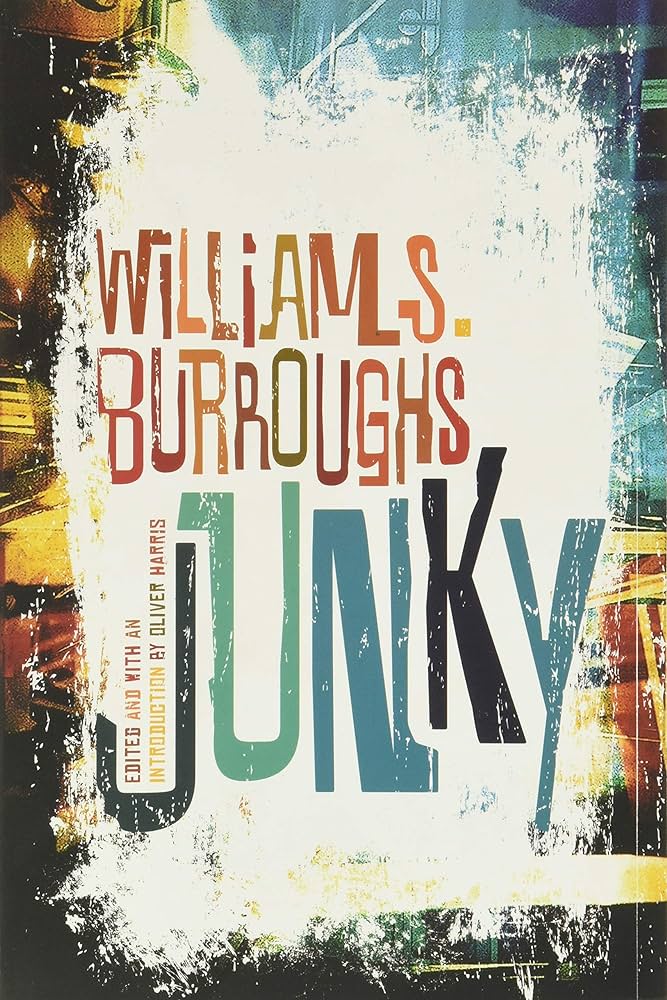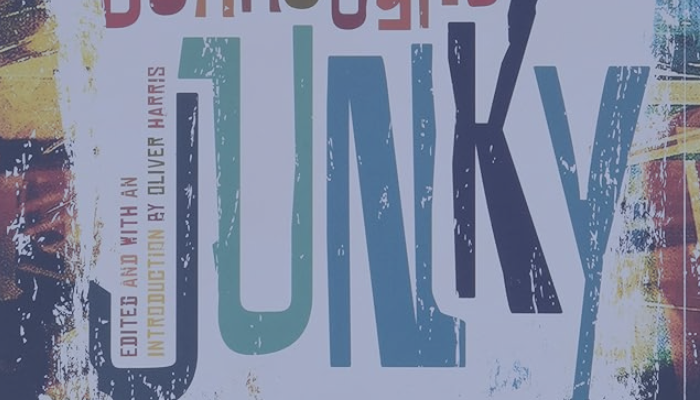

I picked this up on sale at BookPeople late last year and finally got around to reading it. I’d read The Naked Lunch by Burroughs ages ago during a formative time in my life. It was sufficiently disorienting, so I knew what I was in for.
Turns out Junky (1953) – Burroughs’ first published book – isn’t nearly as surreal as some of his later works. It’s very much of its time and the specific place in which it was written – in postwar America where disaffected youth were galvanizing into a creative zeitgeist that would challenge the status quo and savagely begin to tear down institutional interpretations of who we are as a collective.
Junky is a thinly-veiled work of fiction based on Burroughs’ own life as a young man addicted to heroin (and other substances), traversing the seedy underworld of New York, New Orleans and the Texas-Mexico border. In some ways I found it tedious – just another “tell all” – until I realized that this book is actually the original “tell all” from which so many other navel-gazing memoirs have found their inspiration.
In its time, Junky wasn’t just shocking for its subject-matter, but for its transgressive nature overall. It reflects a desire shared by many of his generation (inherited en masse by Baby Boomers who cut their teeth on this type of literature) to scrape off the veneer of perfection that America insisted upon as we headed into the 1950s – shiny people in pressed clothes at soda fountains and in churches pretending to be upright citizens of the greatest nation in the world – while behind closed doors social ills ravaged families and destroyed lives.
“The American upper-middle-class citizen is a composite of negatives. He is largely delineated by what he is not. Gains went further. He was not merely negative. He was positively invisible; a vague respectable presence. There is a certain kind of ghost that can only materialize with the aid of a sheet or other piece of cloth to give it outline. Gains was like that. He materialized in someone else’s overcoat.”
Burroughs’ rejects the need to stand on ceremony and takes us along on his filthy, flawed journey. He doesn’t romanticize his shit, or lionize himself as some kind of counterculture hero. He just tells it like it is in the vernacular of the people who were living it. For this, Junky deserves the lavish praise and critical adoration it has received.
The Q Review features short reviews of books, movies and music.

